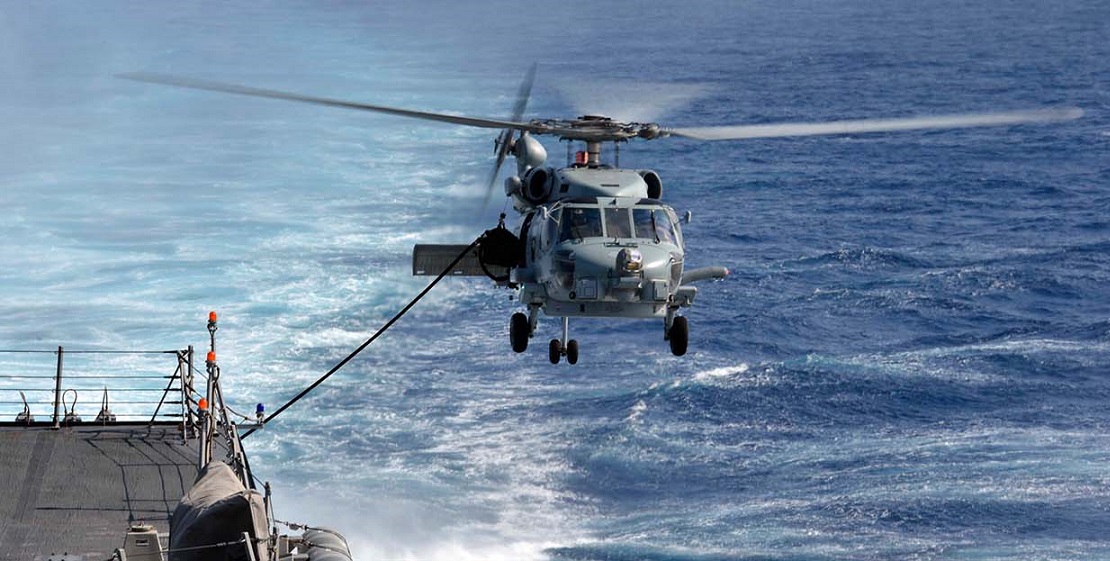This post is also available in:
 עברית (Hebrew)
עברית (Hebrew)
Reliable communication over the open sea is a great technological challenge. It is impossible to have a stationary infrastructure at sea. Nevertheless, increasing resolutions of modern sensors require increased data transfer rates for the intelligence systems.
Unique trials conducted in the Baltic Sea tested communication technologies that should enable real-time information exchange about the maritime environment using aerial, surface and underwater drones.
The activities were conducted in August by the Lithuanian Navy and Baltic Institute of Advanced Technology (BPTI) under the frame of the EU funded project OCEAN2020 designed for the development of military maritime innovations.
The patrol ship P11 “Žemaitis” assigned to the trials by the Lithuanian Armed Forces was equipped with Tactical Mission Management System (TMMS) with integrated special equipment, namely console of a ship-launched Unmanned Aerial Vehicle (UAV) and ad-hoc communication systems, as reported by navalnews.com.
BPTI Defense Program Manager Dr Gediminas Molis said: “Due to frequency allocation restrictions, the communication system used for the information exchange between manned and unmanned platforms must be decentralized and smart, i.e., it must be able to choose operating frequencies and other parameters automatically, considering rapidly changing interference conditions with respect to the movement of own and hostile systems.
Information-sharing protocols here should be similar to the ones used for the Internet/LAN.” According to Lieutenant Commander of the Lithuanian Navy Remigijus Zabiela, the “OCEAN2020 project… deals with the development of innovations that will ensure maritime security of entire Europe. It is the first project of this kind for the Lithuanian Navy, responding to different challenges in the maritime environment every day, ranging from search and rescue operations to the protection of sea routes leading to the seaport of Klaipėda. UAVs tested in the project will enable more rapid response of our ships to the activity in the maritime environment, and the communication equipment will ensure real-time information exchange with shore-based headquarters.”
OCEAN2020 is the first project to bring together military-oriented scientific research aimed at enhancing security in the Mediterranean and the Baltic Sea from all over the Europe. For the first time, augmented and virtual reality technologies will be employed for monitoring and control of the maritime environment. This project focuses on achieving beyond state of the art improvement in the execution of operations, more efficient use of resources and real-time management of accurate information and intelligence data.


























